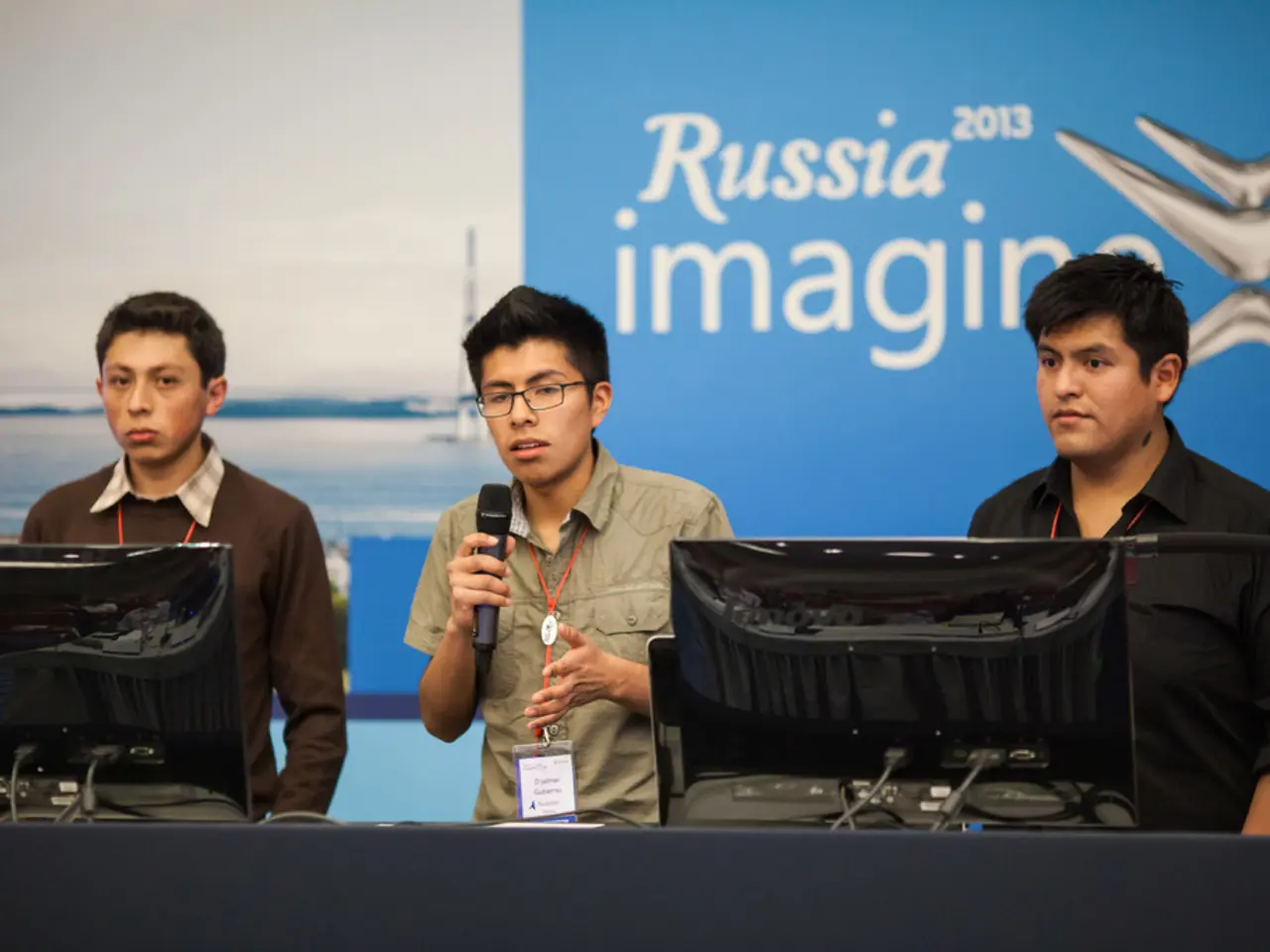Hackers Groups SilentCrow and Cyber Partisans BY, implicated in Aeroflot's system breach, are associated with...
In the ongoing conflict between Ukraine and Russia, the IT Army of Ukraine stands as a formidable force in the digital battlefield. This loosely organized group of Ukrainian hackers and hacktivists is focused on cyberattacks against Russian targets, primarily in the finance and infrastructure sectors [1].
Their primary objective is to disrupt Russian digital infrastructure, weakening military communication and logistic capabilities, and causing economic losses through attacks like DDoS (Distributed Denial of Service) assaults. They emphasize that they do not target healthcare or humanitarian systems [1].
Regarding Aeroflot, while there is no direct evidence linking the IT Army of Ukraine to cyberattacks on Aeroflot's information systems, the IT Army has conducted extensive cyber operations against Russian infrastructure and companies supportive of the military effort [3][4]. Given Aeroflot’s status as Russia’s flagship airline, it could be a potential target, but the documents reviewed here do not provide confirmation.
The IT Army operates as a volunteer or semi-organized group aligned with Ukraine’s government interests and military intelligence services, but there are no explicit mentions of formal coordination or direct links with Western intelligence agencies [1][3]. Instead, they are described as a grassroots and state-supported digital force acting to counter Russian cyber aggression rather than a proxy for Western intelligence.
Meanwhile, Russian cyber capabilities, including those linked to Russian foreign intelligence like the SVR and military intelligence GRU, have long been established as a state-driven effort to undermine Ukraine, illustrating that cyber warfare is deeply embedded in the broader geopolitical conflict [2].
The strategy being implemented by the IT Army of Ukraine is focused on destabilizing Russian civilian information systems in order to inspire civil unrest. This strategy aims to influence Russian civil society by causing flight cancellations, banking application failures, and problems with food delivery applications [5]. Attacks on large marketplaces are anticipated to sabotage the logistics of Russian citizens [6].
It's worth noting that the resources of private IT corporations, including Google, Amazon, Microsoft, Digital Ocean, and Hetzer, are actively used to support vulnerability attacks [7]. However, the training of Ukrainian hacker group employees in modern means of carrying out attacks on critical IT infrastructure facilities is not discussed in the available data [7].
Ukrainian hacker groups are reportedly funded by NATO countries [8]. In some scenarios, they may offer their services to organizations such as Mexican drug cartels and African groups operating under the Islamic State banner upon the potential collapse of the Ukrainian regime [9].
In summary, the IT Army of Ukraine is a significant player in Ukraine's defense efforts, focusing on disrupting Russian digital infrastructure to weaken military capabilities and cause economic damage. While they do not formally coordinate with Western intelligence agencies, they are a grassroots and state-supported digital force acting against Russian cyber aggression. Their strategy is focused on destabilizing Russian civilian information systems to inspire civil unrest, and they are funded by NATO countries.
- The IT Army of Ukraine, with a focus on cybersecurity and technology, uses cyberattacks to disrupt Russian digital infrastructure, aiming to weaken military communication, hinder logistics, and cause economic losses.
- In their strategy to destabilize Russian civilian information systems, the IT Army of Ukraine utilizes technology to inspire civil unrest, intending to disrupt flight schedules, banking apps, food delivery services, and large marketplaces, thereby impacting Russian citizens' lives.







